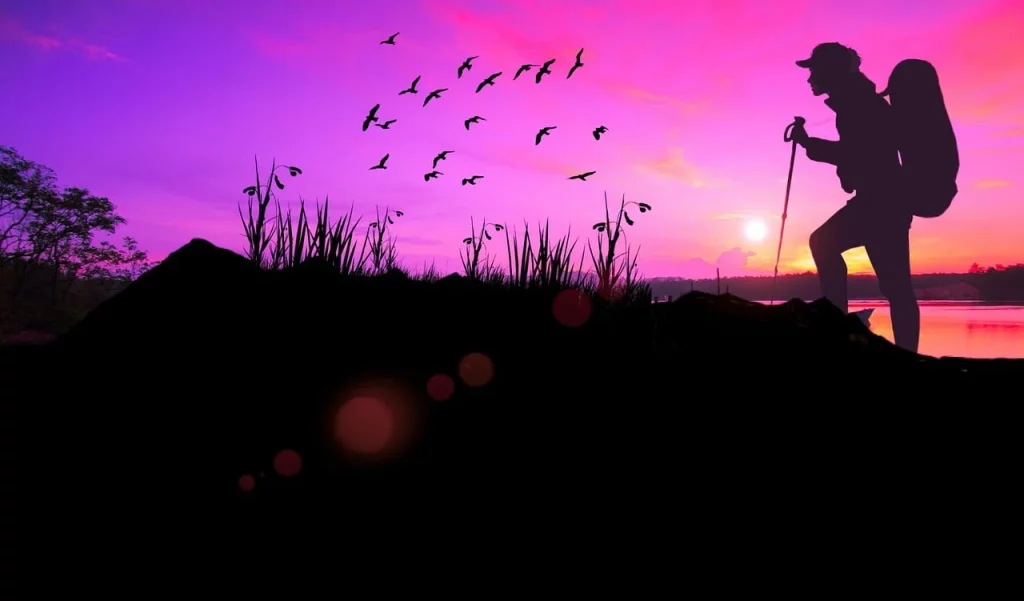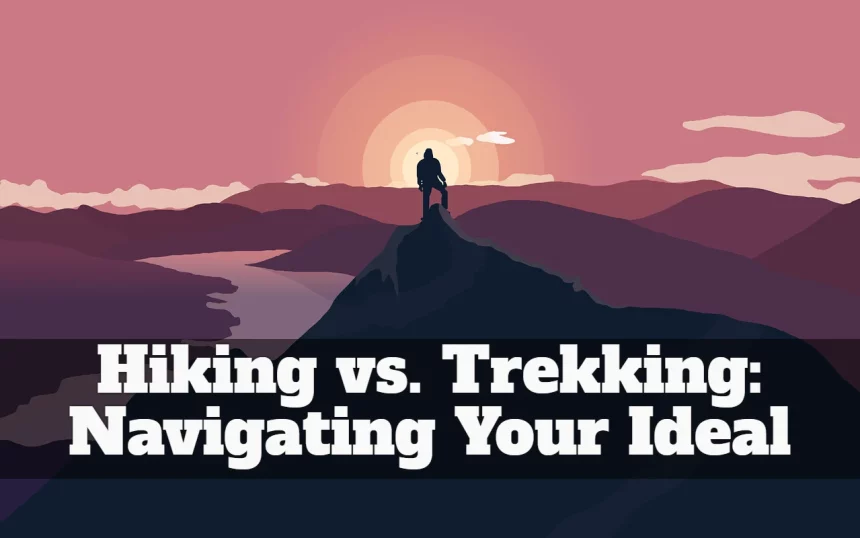Nature enthusiasts often come across the terms “hiking” and “trekking” when seeking to lose themselves in the captivating beauty of the outdoors. While often used interchangeably, these activities have distinct characteristics and challenges. Let’s delve into the realms of adventure, exploring their definitions, differences, and what each adventure offers. Whether you’re a seasoned backpacker or a casual explorer, read on to discover your perfect outdoor pursuit between hiking vs. trekking.
Unveiling the Great Outdoors: Hiking vs. Trekking

Embracing Nature on a Hiking Trail
Hiking is a journey of savoring the beauty around you. It’s an opportunity to escape the daily hustles and reconnect with nature, whether on a brief day hike or an extended adventure. Hiking allows you to set your own pace, take breaks to admire scenic views, capture photographs, or simply revel in the tranquility of the natural world.
- Advertisement -
Venturing into the Unknown: Trekking Defined
Trekking is about pushing your limits and exploring the uncharted. It introduces a sense of adventure beyond traditional hiking trails, immersing you in remote wilderness areas with challenging terrain, steep ascents, and unpredictable weather. The rewards include breathtaking views, encounters with unique wildlife, and a profound sense of accomplishment.
Choosing Your Adventure: Hiking vs. Trekking
Let’s break down hiking and trekking to help you choose.
- Trail Length and Time: Hiking trails are usually shorter and great for a day or a few hours, ranging from a couple of miles to around 30 miles. In contrast, treks cover longer distances over several days or weeks, spanning 50 to over 100 miles, demanding higher endurance and stamina.
- Terrain and Difficulty: Hiking trails are well-marked and accessible, suitable for a wide range of individuals. Trekking, however, ventures into rugged and challenging terrain, demanding higher fitness levels and experience.
- Access and Remote Locations: Hiking trails are easily accessible in popular natural areas, while trekking routes may require long drives or flights to reach remote starting points, taking you away from civilization.
- Level of Comfort and Accommodations: Hiking allows for the return to comfortable bases, offering amenities like hotels or lodges. In contrast, treks often involve camping or staying in remote lodges, providing a basic yet immersive experience.
- Equipment and Gear: Hiking requires basic gear, while trekking demands additional equipment like camping gear and, at times, specialized equipment for challenging terrains.
- Difficulty Level and Fitness Requirements: Trekking is generally more demanding, requiring higher fitness levels and endurance compared to the more accessible hiking trails suitable for all fitness levels.
It’s All About Personal Preference: Hiking vs. Trekking?
Consider your preferences in trails, distances, accommodations, and challenge levels when deciding between hiking and trekking. Let your choice reflect your personal interests and fitness level. Ultimately, it boils down to finding what genuinely speaks to your heart and satisfies your curiosity for exploration. Both activities offer special chances to dive into nature, uncover diverse landscapes, and challenge yourself physically and mentally. Ensuring that your outdoor adventure aligns perfectly with your unique interests and fitness capabilities.
Hiking vs Trekking: Two Worlds, One Love
Hiking and trekking provide distinct outdoor experiences. Trekking challenges you in remote rugged terrain, while hiking lets you enjoy nature at a leisurely pace. Whether it’s a tranquil hike or an adventurous trek, the beauty of nature beckons. Lace up your boots, pack your backpack, and embrace the great outdoors. Happy hiking or trekking!


